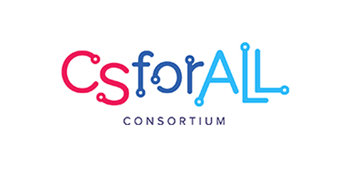VHS Learning is Empowering the Next Generation Through CS Education
By Kim Spangenberg
In our technology-driven world, the demand for skilled professionals in computer science fields is rapidly on the rise. Projections from the U.S. Bureau of Labor Statistics indicate over 377,000 job openings annually through 2032 in computer science and information technology fields. With this in mind, it’s important for schools to prepare students to enter this dynamic world.
Knowledge of computer science prepares students for essential jobs that pay well and are in high demand and ensures students are informed citizens in our digital world. Despite the undeniable impact of technology on our lives, only 53% of U.S. high schools offer computer science courses. Currently, only 29 states have policies providing access to computer science education for high school students, and only 13 have expanded those policies to all K–12 students. Access remains limited, particularly for underserved students in high-poverty or rural areas.
Over the past decade, initiatives such as CSforALL and CSforEd, and organizations like Code.org and the Computer Science Teachers Association have strived to integrate computer science into K–12 education. A few of the barriers to providing comprehensive computer science education include issues of technology access, quality curriculum availability, teacher recruitment, and scheduling conflicts. While districts, organizations, and initiatives have made strides to address some of these concerns, challenges such as recruiting educators with the necessary skills and finding time in the school day persist.
Breaking barriers and expanding opportunities with online learning
Even with the positive changes made over the last decade, making computer science available to all students has proven difficult. The CSforALL initiative, launched in 2016, aims to unite stakeholders, including school systems, nonprofits, private sector companies, and families, to overcome these challenges. Organizations like VHS Learning have been pivotal in this effort, making commitments to expand computer science access and improve equity nationwide.
For the past seven years, we have committed to developing curricula and partnering with schools to serve students who would otherwise not have access to computer science courses. At VHS Learning, we offer high-quality online instruction that allows districts to quickly expand their programs and offer courses they might not otherwise provide, improving access for underserved students. Addressing teacher recruitment and scheduling conflicts, our courses are taught by experienced and certified high school teachers trained in online teaching best practices. Additionally, site coordinators at students' local schools provide support, ensuring they stay on track with their learning.
Diverse course offerings, leading to impressive outcomes
Our computer science catalog includes a diverse array of semester-length elective courses, catering to students of all levels. From interest-based courses like Cybersecurity and Video Game Design to courses that introduce programming languages like Python Programming and Java Programming, our curriculum is designed to engage and inspire.
With VHS Learning, students achieve strong outcomes in their computer science courses, with over 85% of students passing the AP Computer Science Principles exam and 82% passing the AP Computer Science A exam during the 2023 school year. This puts VHS Learning student success rates consistently above global averages. These courses not only offer the opportunity to earn college credit but also fulfill math credit requirements in many states and districts.
Expanding our courses to support evolving technology
VHS Learning is dedicated to growing and expanding our computer science course offerings as the educational landscape continues to evolve. To prepare students for a dynamic array of technology careers, we have added several new courses to our catalog, including:
- Principles of Computer Science - This foundational course has a strong focus on computational thinking and problem-solving skills. Students will use coding to solve problems, investigate AI and machine learning, explore the role the web plays in creative expression, and gain an understanding of how the design process can be used to create computational artifacts.
- Data Science - This course explores mathematics, computing, and data science, and the many professions involved. Students will confront messy questions using data, explore sample datasets, and grasp the fundamental relationship between probability and statistics.
- Discrete Math - This course will appeal to students with an interest in cryptology, social networks, ChatBot AI, and game theory. It builds mathematical concepts into programming tasks to develop essential coding skills that can be applied to a variety of problems in the real world.
- Mobile App Development - This new course teaches students to design and code apps for the iPhone and Android platforms using the MIT App Inventor platform. Students will review and design interactive applications for a variety of uses including education, sports, entertainment, health or medicine, and social networking.
Additionally, we are launching the first course of the CompTIA Core Skills Pathway, called IT Fundamentals, this year. Through this career and technical education pathway, high school students can take industry level CompTIA certification exams that will help prepare them for a career in Information Technology.
Preparing for the future
As technology evolves, the need for individuals with computational thinking and problem-solving skills will continue to rise. Computer science education can help lay a foundation that equips students for the challenges they may face in college and the workforce. Whether students pursue careers in IT or other fields, technology will play a critical role, making it key to expand computer science education access for all.
Learn more about how CSforALL and VHS Learning are working to improve computer science access in our recent THE Journal article: The Urgent Need to Expand Access to Computer Science Education.

/two-girls-working-on-laptop.jpg?width=352&name=two-girls-working-on-laptop.jpg)
